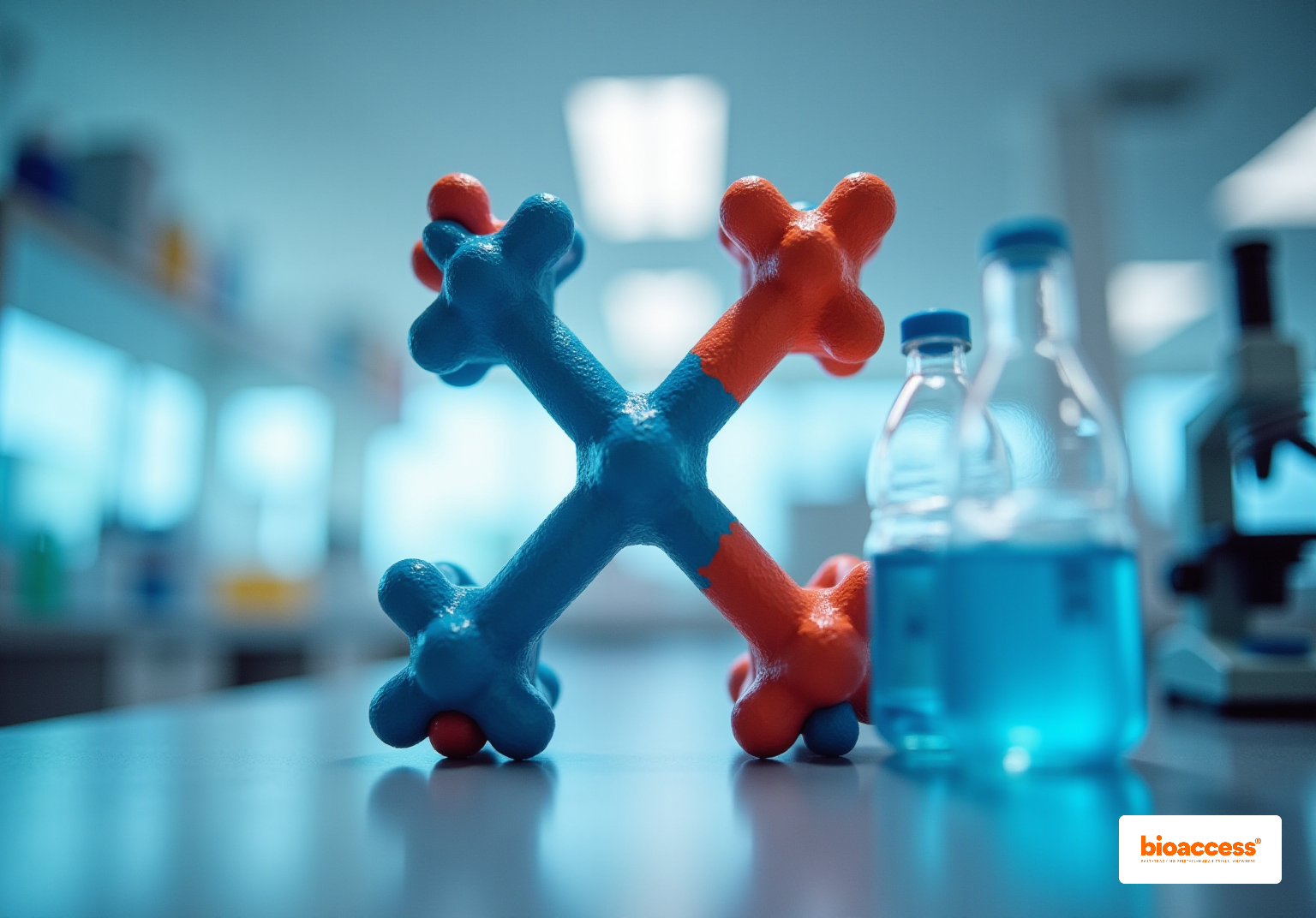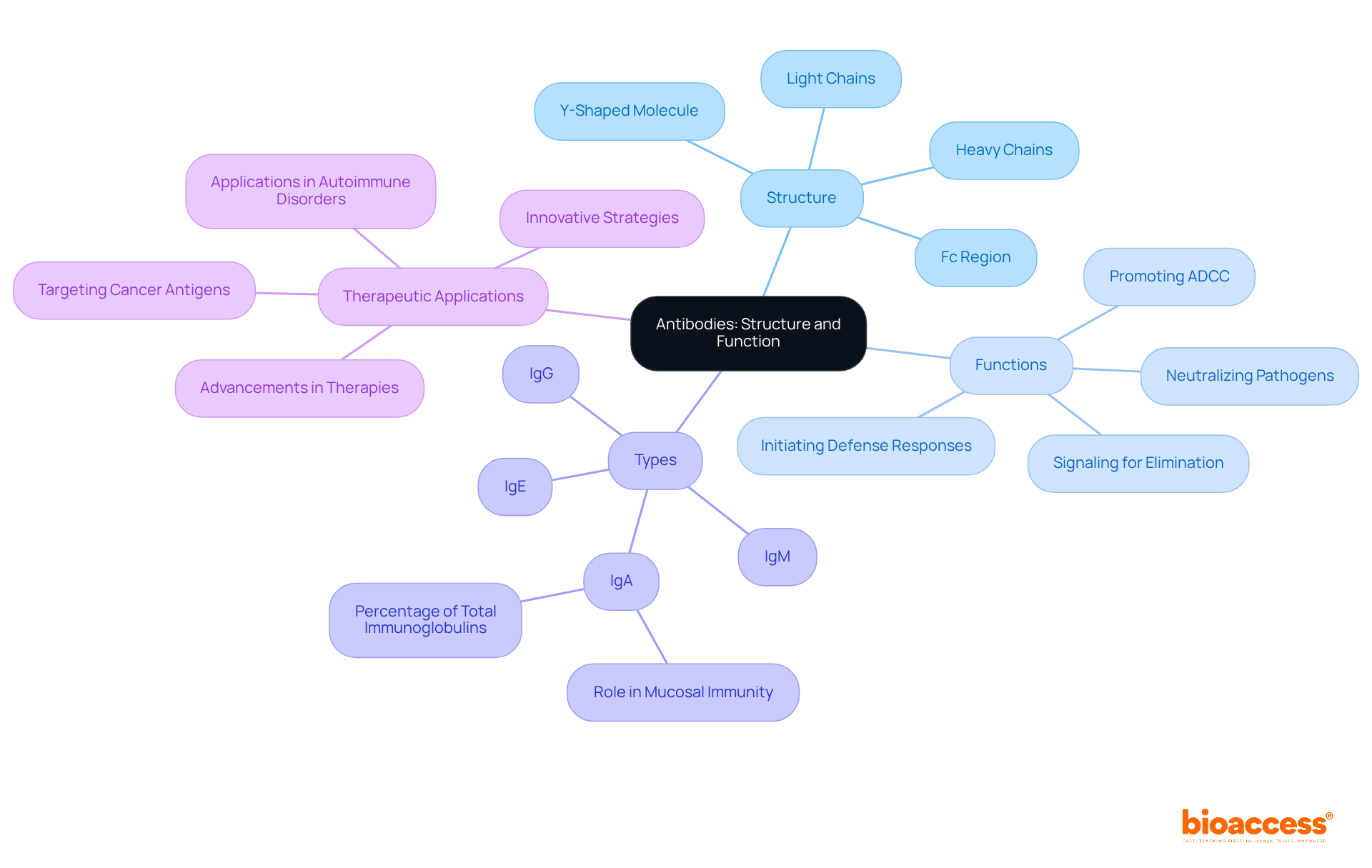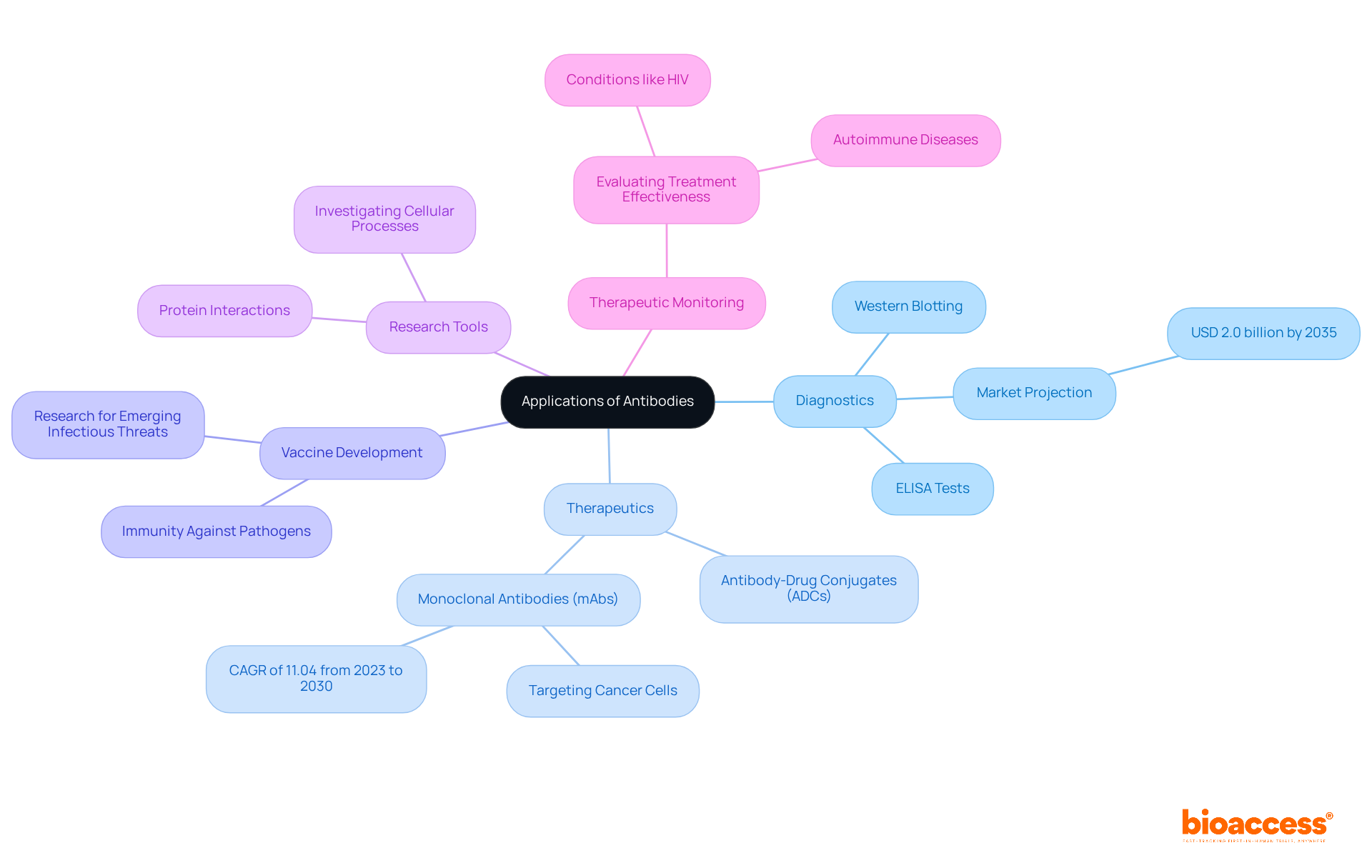


This article delves into the various types of antibodies, their functions, and their applications in health and medicine. Antibodies, including IgG, IgA, IgM, IgE, and IgD, each serve distinct roles within the immune response. They are essential for neutralizing pathogens and play a critical role in diagnostics and therapeutics. This underscores their vital importance not only in immune defense but also in clinical applications, highlighting the need for ongoing research and collaboration in this field.
Antibodies serve as remarkable defenders of the immune system, functioning as specialized proteins that identify and neutralize foreign invaders. With five distinct isotypes, each tailored for specific roles—from neutralizing pathogens to facilitating allergic responses—these Y-shaped molecules play a pivotal role in both health and disease management. As advancements in antibody research continue to unfold, one critical question emerges: how can a deeper understanding of these diverse antibody types revolutionize diagnostics and therapeutics in modern medicine?
Antibodies, also known as immunoglobulins, are specialized proteins produced by the body's defense system in response to foreign substances called antigens. These Y-shaped molecules are composed of four polypeptide chains: two identical heavy chains and two identical light chains. The tips of the Y feature variable regions that specifically bind to antigens, while the stem, known as the Fc region, determines the immunoglobulin class and facilitates interactions with other defense components. This unique structure enables antibodies to effectively neutralize pathogens, signal for their elimination, and initiate additional defense responses, making them essential for maintaining health and combating infections.
Recent studies underscore the diverse roles antibodies play within the defense system. For instance, immunologists have identified that antibodies can promote cell-mediated cytotoxicity (ADCC), marking infected cells for destruction by defense cells. Additionally, advancements in immunoglobulin research have revealed the significance of different types of antibodies, including IgA, which makes up 10-15% of total immunoglobulins in serum and is essential for mucosal immunity.
The ongoing exploration of protein structure and function continues to yield insights that enhance our understanding of defense reactions. Notably, the development of antibody-based therapies is advancing rapidly, with innovative strategies targeting previously undruggable cancer antigens. These breakthroughs not only improve therapeutic outcomes but also expand the potential applications of immunoglobulins in treating a range of conditions, including autoimmune disorders and infectious diseases.

There are five primary isotypes of antibodies, which are different types of antibodies, each serving unique roles in the immune response. Understanding different types of antibodies is crucial for comprehending how our immune system operates effectively against various pathogens.
IgG: As the most prevalent immunoglobulin in the bloodstream, IgG constitutes approximately 80% of total immunoglobulins and 75% of serum immunoglobulins. This isotype can be further divided into four sub-isotypes, each with distinct effector functions. IgG is essential for neutralizing toxins and pathogens, and its ability to traverse the placenta ensures passive immunity for the fetus, providing vital protection for newborns during their early life.
IgA: Predominantly found in mucosal areas such as the gut, respiratory tract, and urogenital tract, IgA plays a pivotal role in mucosal immunity. It can be categorized into two sub-isotypes and acts as a barrier against pathogen adherence and invasion, serving as the first line of defense in these vulnerable regions.
IgM: Known as the largest antibody, IgM is the initial responder generated following an infection, comprising about 10% of antibodies in the blood. Its effectiveness lies in forming complexes with antigens and activating the complement system, which enhances pathogen clearance and triggers a robust immune reaction.
IgE: This isotype is primarily associated with allergic reactions and responses to parasitic infections. Constituting merely 0.002% of overall serum immunoglobulins, IgE binds to allergens, instigating histamine release from mast cells, which leads to inflammation and the symptoms commonly associated with allergies.
IgD: Although its precise function remains less understood, IgD is located on the surface of B cells and is crucial for initiating B cell activation and differentiation. It contributes to the adaptive defense system, even though it accounts for only around 0.25% of antibodies in the human body.
The distinctive structures and roles of different types of antibodies empower the immune system to mount effective responses against a diverse range of pathogens, underscoring their significance in both health and illness.

Different types of antibodies play a multitude of critical roles in both research and clinical environments, highlighting their significance in advancing medical science and improving patient outcomes.
Diagnostics: Different types of antibodies are integral to various diagnostic tests, such as ELISA and Western blotting, which are used to detect specific antigens linked to diseases, including infections and cancers. The global market for diagnostic proteins is projected to reach USD 2.0 billion by 2035, reflecting their essential role in healthcare.
Therapeutics: Monoclonal proteins (mAbs) are designed to precisely target different types of antibodies on cancer cells, autoimmune disorders, and infectious agents. This targeted approach not only enhances treatment efficacy but also reduces side effects compared to conventional therapies. The monoclonal proteins market is anticipated to expand at a compound annual growth rate (CAGR) of 11.04% from 2023 to 2030, propelled by the rising occurrence of cancer and long-term health conditions. Significantly, the worldwide monoclonal proteins market is projected to attain USD 494.53 billion by 2030, highlighting its considerable growth potential.
Vaccine Development: Different types of antibodies are crucial for vaccine efficacy, as they provide immunity against pathogens. Their research is essential for creating effective vaccines, especially regarding emerging infectious threats.
Research Tools: In laboratory environments, different types of antibodies are invaluable for investigating cellular processes, protein interactions, and signaling pathways. They facilitate advancements in biomedical research, which contribute to the development of different types of antibodies and new therapeutic strategies.
Therapeutic Monitoring: Tracking levels of different types of antibodies and immune proteins is essential for evaluating treatment effectiveness, especially in conditions like HIV and autoimmune diseases. This practice aids clinicians in making informed decisions regarding patient care.
Real-world instances, such as the application of monoclonal agents like trastuzumab in HER2-positive breast cancer therapy, demonstrate their transformative influence in oncology. Furthermore, recent FDA approvals for bispecific agents, such as blinatumomab for B-cell tumors, further illustrate the progress in therapeutic treatments. As the market for monoclonal antibodies continues to expand, ongoing innovations promise to further enhance their therapeutic potential.

Antibodies are fundamental components of the immune system, serving as specialized proteins that recognize and neutralize foreign substances. Their unique structure and diverse isotypes, including IgG, IgA, IgM, IgE, and IgD, empower the immune system to mount effective responses against a wide array of pathogens. Understanding the functions and applications of these different types of antibodies is crucial for appreciating their role in both health and disease management.
This article delves into the various types of antibodies, highlighting their specific functions and importance:
Furthermore, the implications of these antibodies extend beyond basic immunity; they are instrumental in diagnostics, therapeutics, vaccine development, and research applications, showcasing their versatility in clinical and laboratory settings.
Recognizing the significance of antibodies not only enhances our understanding of the immune system but also emphasizes ongoing innovations in antibody-based therapies. As research continues to uncover new applications and improve existing treatments, the potential for antibodies to transform patient care and advance medical science remains vast. Engaging with the complexities of antibody functions and their clinical applications inspires further exploration and innovation in the field of immunology and biotechnology.
What are antibodies?
Antibodies, also known as immunoglobulins, are specialized proteins produced by the body's defense system in response to foreign substances called antigens.
What is the structure of antibodies?
Antibodies are Y-shaped molecules composed of four polypeptide chains: two identical heavy chains and two identical light chains. The tips of the Y contain variable regions that bind specifically to antigens, while the stem, or Fc region, determines the immunoglobulin class and facilitates interactions with other defense components.
What roles do antibodies play in the immune system?
Antibodies neutralize pathogens, signal for their elimination, and initiate additional defense responses. They also promote cell-mediated cytotoxicity (ADCC) by marking infected cells for destruction by defense cells.
What is the significance of different types of antibodies?
Different types of antibodies, such as IgA, play crucial roles in the immune system. IgA, for instance, constitutes 10-15% of total immunoglobulins in serum and is essential for mucosal immunity.
How is research on antibodies advancing?
Ongoing research on antibody structure and function is enhancing our understanding of defense reactions. Notably, the development of antibody-based therapies is progressing rapidly, targeting previously undruggable cancer antigens and expanding applications for treating conditions like autoimmune disorders and infectious diseases.